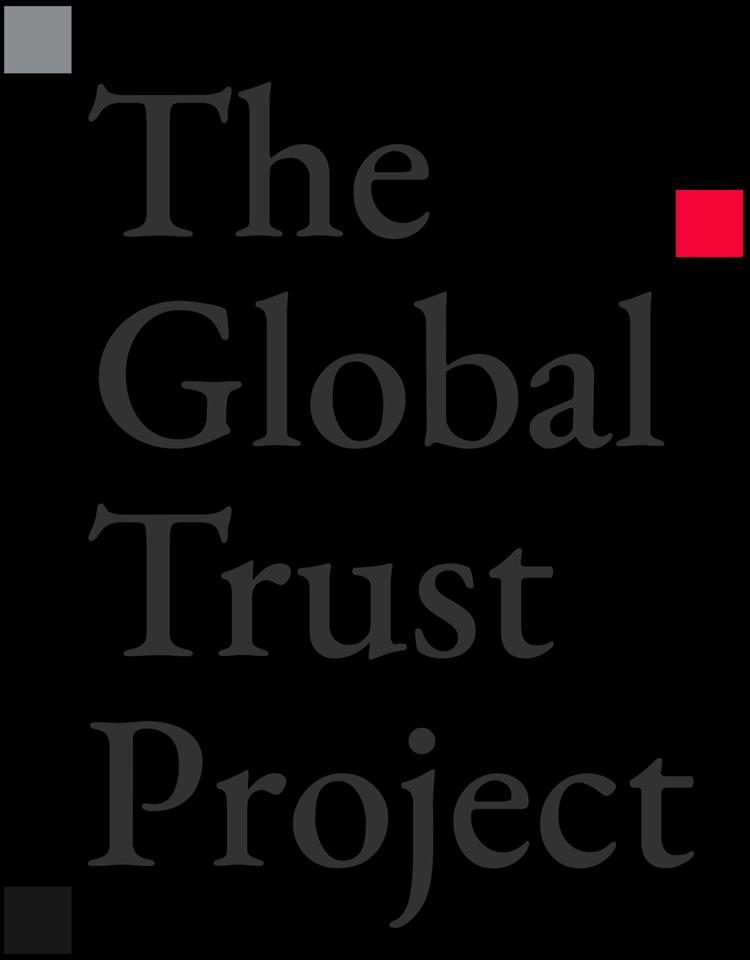Trust Is Fundamental For Africa: In Conversation With Dr Jim Harter, Chief Scientist At Gallup, On Closing Distance
Gallup's Chief Scientist, Dr Jim Harter, joins Closing Distance host Dominic Wilhelm in a new episode, 70 Million Conversations Later, to explore why trust is fundamental for Africa and beyond. Drawing on Gallup's research across more than 160 countries and 70 million employees – including sobering data from sub-Saharan Africa – Harter reveals how authentic leadership and simple habits can transform stress, disengagement, and loneliness into resilience, performance, and thriving workplaces.
Trust is fundamental to human connection, resilient organisations, and performance that lasts. That was the clear message from Dr Jim Harter, Gallup's Chief Scientist, in a new episode of Closing Distance with Dominic Wilhelm, Executive Director of The Global Trust Project.
Gallup has surveyed more than 70 million employees worldwide and conducts representative polls in over 160 countries – including across Africa. Its findings are unequivocal: trust underpins engagement, wellbeing, and profitability. Organisations that get trust right not only outperform financially but remain resilient through crises.
The African picture is both sobering and urgent. According to Gallup's State of the Global Workplace 2024 report, nearly half of employees in sub-Saharan Africa (48%) experienced significant stress the previous day, compared with a global average of 41%. More than one in four (28%) reported loneliness, again higher than the global average of 22%. And only 17% of workers in the region said they were thriving, compared with 33% globally.
These indicators are not simply statistics: they are signals of trust, or its absence, in workplaces across the continent. When leaders fail to provide clarity, recognition, and care, employees disengage. But where leadership is authentic and close to people, the results are striking.
“The people within those organisations are experiencing high involvement, enthusiasm for their organisation, high interest in their jobs. They're producing at high levels. They're holding their own during crises. The organisations themselves are more profitable. They're serving their customers effectively.” – Dr Jim Harter
Harter's prescription for rebuilding trust is practical: one meaningful conversation each week between a manager and every team member. For Wilhelm, it connects directly with The Global Trust Project's Trust Equity Index (TEi), which measures Integrity, Benevolence, Capability, and Inclination alongside key impact factors. The TEi provides African leaders with a structured way to operationalise trustworthiness – turning insight into action.
“Trust isn't something you build directly,” Wilhelm reflected.“It emerges when integrity, benevolence, and capability are present and lived. Trustworthiness can be operationalised. Trust itself is felt.”
The episode also explored definitions of trust. Harter described it at a basic level as reliability –“can I count on this person?” – and at a deeper level as the confidence to be one's true self and be accepted. Wilhelm added a widely cited definition:“trust is the willingness to be vulnerable based on expected behaviours.” Both agreed that expected behaviours centre on integrity, benevolence, and capability – qualities that, when present, create the conditions for trust to emerge.
A theme that resonated strongly was proximity. Gallup's research shows that trust is highest with colleagues and local managers, and weakest with distant leaders. This reflects both human evolution and organisational design. As Harter noted, large organisations are recent inventions in human history, and distance – physical and psychological – can quickly erode trust. Managers therefore play a decisive role: they account for 70 percent of the variance in team engagement, acting as the bridge between leadership vision and employee reality.
The conversation also touched on the language of leadership. Industrial-era models often reduced people to mechanised parts, with annual performance ratings disconnected from lived experience. Harter argued for more humanising language, noting that Gallup refers to managers as“go-tos” – someone employees can turn to for support, goal-setting, and advice – rather than bosses.
The urgency of this message is particularly acute in Africa, where trust intersects with the continent's biggest priorities. High trust in institutions can accelerate economic growth, strengthen governance, and boost tax compliance. It can also support the success of the African Continental Free Trade Area (AfCFTA), which depends on governments and businesses trusting one another across borders. In the workplace, rebuilding trust is essential for engaging Africa's young and fast-growing workforce – the largest youth population in the world.
While global trust in institutions has been sliding, the evidence in Africa shows that organisations with great leadership can buck the trend – proving that trust, once restored, becomes a renewable source of resilience and prosperity. Informal economies across Africa already run on trust; formal organisations can draw on these traditions, and on African values of dialogue and relational leadership, to build workplaces where people can thrive.
70 Million Conversations Later: Dr Jim Harter on Closing Distance is available now on the Closing Distance podcast.
Distributed by APO Group on behalf of The Global Trust Project.
Closing Distance Promo Card - Jim Harter
-
Downloa
Shar
Jim Harter and Dominic Wilhelm
-
Downloa
Shar
Contact us:
...
+27 21 700 3500
For more :
...
Available on Spotify:
-
Search“Closing Distance”
Episode Link:
Available on YouTube:
-
Search“Closing Distance”
Episode link:
Pictures follow and are attached.
About Gallup & Jim Harter:
Gallup is a global analytics and advice firm that studies what people need to live better lives and perform better at work. Its world polls span more than 160 countries, and its workplace research has surveyed over 70 million employees across thousands of organisations, including extensive work in Africa.
Dr Jim Harter is Gallup's Chief Scientist for Workplace Management and Wellbeing. He has worked at Gallup for nearly four decades and was part of the original team that developed the Gallup World Poll. Harter has co-authored influential books such as Wellbeing at Work and 12: The Elements of Great Managing, and leads Gallup's ongoing research linking trust, engagement, and wellbeing to organisational performance.
About Closing Distance:
More about The Global Trust Project (TGTP), Dominic Wilhelm & Closing Distance The Global Trust Project equips leaders, teams, organisations, and governments to operationalise trustworthiness as a strategic asset using evidence-based frameworks and learning. Its Trust Equity Index (TEi) enables leaders to measure and manage trust as both human and organisational capital. Executive Director Dominic Wilhelm hosts Closing Distance, a conversation series exploring how trust closes the gaps that hold people and systems back.
Coming Up for TGTP:
Dominic Wilhelm will be delivering a keynote and hosting a High Level Dialogue at the Africa CX Leaders Forum, taking place in Kigali, Rwanda, on September 11 - 12, 2025. The forum is a premier gathering of Africa's customer experience leaders – bringing together heads of CX from the continent's largest corporations, national CX associations, and solution providers. Its purpose is to share best practices, explore country-level research on customer preferences, and align transformation efforts with the Global CX Index.
In this context, Wilhelm will highlight how trust translates directly into customer experience. In workplaces where trust is absent, employees experience stress, loneliness, and disengagement – challenges Gallup's latest research shows are acute in sub-Saharan Africa. Conversely, when organisations operationalise trustworthiness, they unlock the authenticity and resilience that make for customer experiences that are both locally grounded and globally competitive.

Legal Disclaimer:
MENAFN provides the
information “as is” without warranty of any kind. We do not accept
any responsibility or liability for the accuracy, content, images,
videos, licenses, completeness, legality, or reliability of the information
contained in this article. If you have any complaints or copyright
issues related to this article, kindly contact the provider above.
Most popular stories
Market Research

- Japan Buy Now Pay Later Market Size To Surpass USD 145.5 Billion By 2033 CAGR Of 22.23%
- BTCC Summer Festival 2025 Unites Japan's Web3 Community
- GCL Subsidiary, 2Game Digital, Partners With Kucoin Pay To Accept Secure Crypto Payments In Real Time
- Smart Indoor Gardens Market Growth: Size, Trends, And Forecast 20252033
- Nutritional Bar Market Size To Expand At A CAGR Of 3.5% During 2025-2033
- Pluscapital Advisor Empowers Traders To Master Global Markets Around The Clock






















Comments
No comment